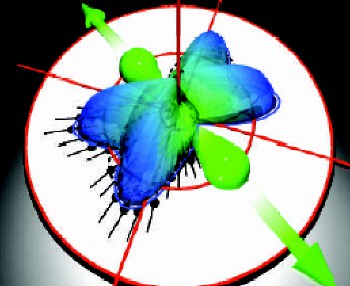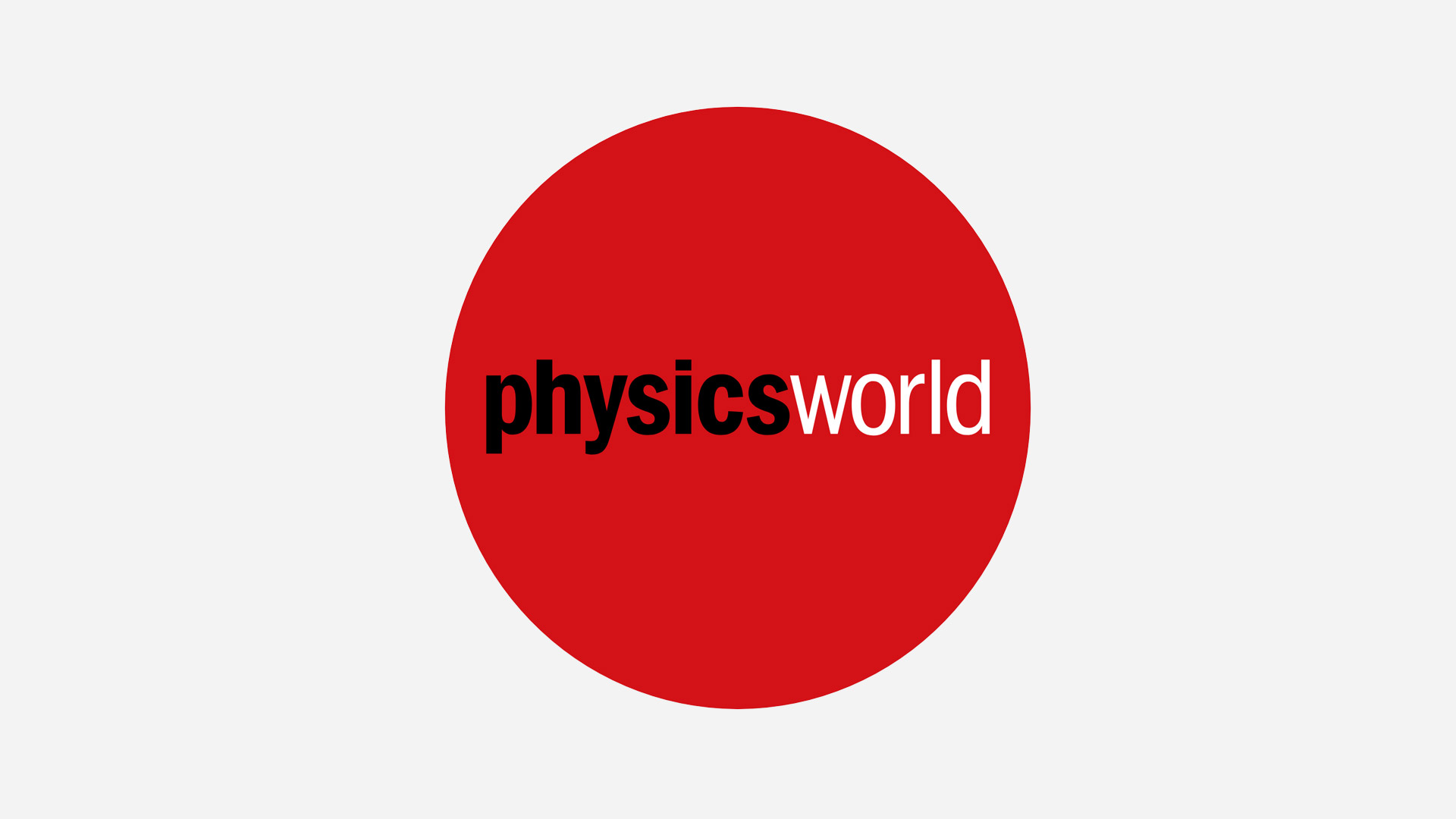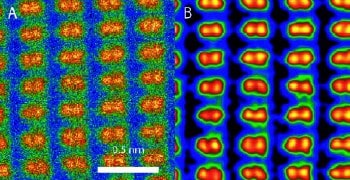Explosive breakthrough
Complete measurement offers new insights into molecules
 Read article: Explosive breakthrough
Read article: Explosive breakthrough
Thank you for registering with Physics World
If you'd like to change your details at any time, please visit My account
Isabelle Dumé is a contributing editor to Physics World. She has more than 10 years of experience in science writing and editing in condensed-matter physics relating to technology/nanotechnology/biotechnology, astronomy and astrophysics, energy and the environment, biology and medicine. She has an MSc in advanced materials and a PhD in magnetism. In her spare time, she helps to organize cafés scientifiques.
Complete measurement offers new insights into molecules
 Read article: Explosive breakthrough
Read article: Explosive breakthrough
Placing a radioactive nucleus in a carbon-60 cage can reduce its half-life

New "spectacles" boost the performance of scanning transmission electron microscopes
 Read article: Microscope focuses on sub-Angstrom scales
Read article: Microscope focuses on sub-Angstrom scales
New device exploits both the mechanical and electronic properties of carbon nanotubes
 Read article: Nanotubes feel the force
Read article: Nanotubes feel the force
High temperatures and pressures in the Earth's mantle might be capable of turning inorganic materials into hydrocarbon fuels
 Read article: Petroleum under pressure
Read article: Petroleum under pressure
Physicists move closer to explaining one of the last great mysteries of classical physics
 Read article: Taking a close look at turbulence
Read article: Taking a close look at turbulence
Tiny particles of gold help X-rays to kill cancerous cells
 Read article: Nanoparticles target tumours
Read article: Nanoparticles target tumours
Theorists have discovered a new family of clusters with a metal core and silver outer shell
Physicists have built a new micron-sized magnetic-levitation device
 Read article: Floating femtodroplets
Read article: Floating femtodroplets
A British bookmaker is accepting bets on the results of five large physics experiments
